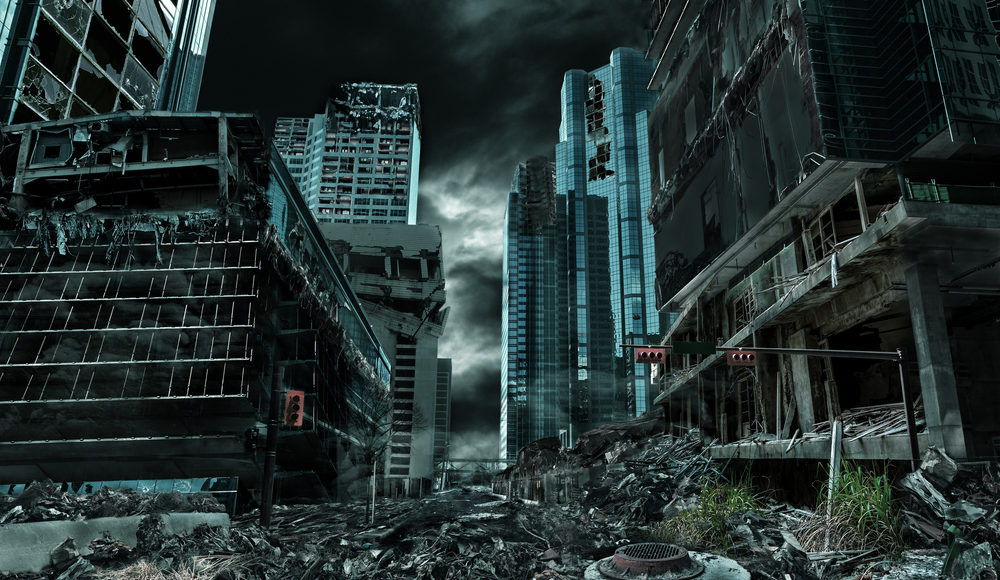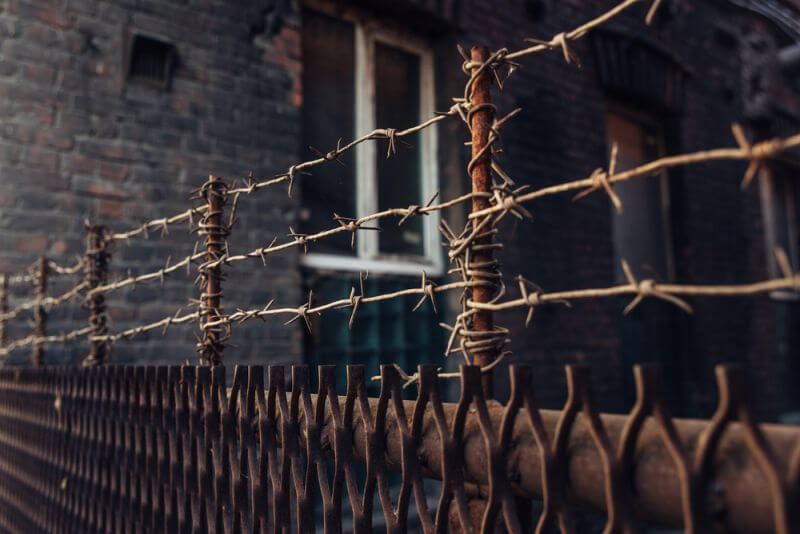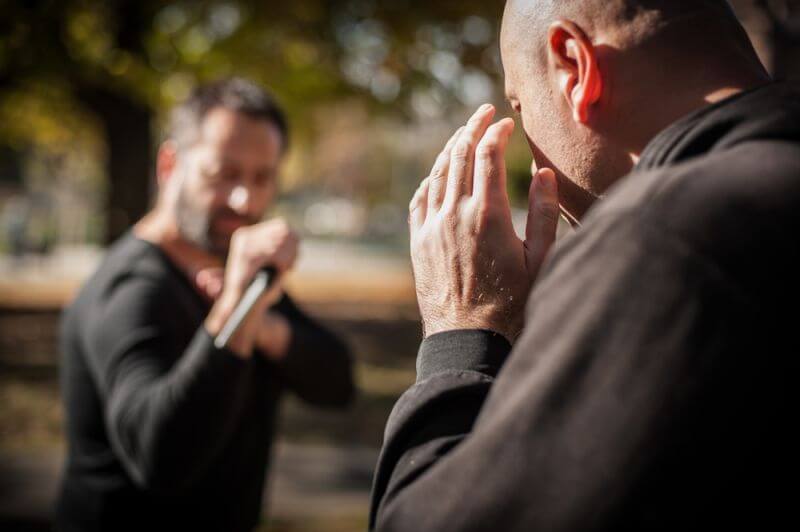I’ve been thinking lately about what life would be like in a post-apocalyptic world. What I mean is life after any TEOTWAWKI event, especially the idea of putting society back together again. While you and I might be able to survive to the end of our days without rebuilding society, our children can’t. Where would they find spouses without some society being in place? They’re sure not going to find them hiding in a cabin in the woods.
Besides that, humans are social creatures. We need other people around us, not just for their abilities, but also to form relationships. Much of our understanding of ourselves and our self-worth comes from those relationships. Without them, we can lose our purpose in living.
Not only do we need society, but we need government as well. We don’t need the massive and complex government we have today, but we need government, something more like the Founding Fathers envisioned. Without government, crime goes unstopped and unpunished, and humanity will degenerate into destroying one another without government. We could even get to the point of causing our extinction.
3 Second SEAL Test Will Tell You If You’ll Survive A SHTF Situation
Finally, I don’t want to see my children and grandchildren grow up in a world where they have a worse life than my own. While there is a lot to be said for living the simple life, living off the land, that’s a hard life without any of the creature comforts we’ve become accustomed to. Even if I were to want to choose that for myself, I wouldn’t want to force my children into that lifestyle against their will. They should have the opportunity to choose whether they want the conveniences of modern life or which of those conveniences they wish to have.
But not only is it convenient, but it’s also basic survival. One of the things that makes it possible for us to live as well as we do is that society is made of a myriad of different specialists, each providing what they can benefit the whole. Granted, some of those are unnecessary, but we certainly can’t say that about medicine, agriculture, or a host of other specialties.
So, should we be struck by an EMP or other TEOTWAWKI event, it would be up to those who survived to rebuild whatever society there would be. That means that it would be up to us preppers, as we will probably be the majority of those who survive. Others may, too, but we will be a large portion of those still here.
What skills would be needed to bring at least some of society back to life in such a case? I’m not just talking about surviving here, but reestablishing something that looks like a semi-modern life, say how people lived in the early 1900s.
As I think about this, the areas which seem the most critical restoring to reestablish some society are:
- Electric power production and distribution
- Transportation, especially trucking
- Petroleum distillation for transportation
- Communications
This isn’t a complete list. Although critical to survival, I’ve intentionally left off things like agriculture and medicine. But because they are essential to survival, they are not part of rebuilding society. I don’t want to diminish their importance in any way but instead, focus on skills that may have been ignored or forgotten before.
Librarians
This is probably the strangest sounding profession I’m putting on this list, but without the internet, we will have to resort to paper books to find out how to do the things we’re going to need to do. Not only do librarians know, better than anyone, what their libraries hold and how to find it, but they are also trained researchers. There will be a lot of research needed, especially into finding old ways of doing things or ways to do something we’ve counted on major corporations doing for us.
Electric Power Generation Engineers and Technicians
I’m not sure what the actual titles of these people are, but there are people out there who design and maintain our electrical power generation plants. If those plants ever get going again or if new plants are built, perhaps on a smaller scale, it will probably be due to the efforts of these people. This may require them to rebuild generators from the ground up, which they probably never did before.
As a sub-category of this, knowing how to build a hydroelectric plant would be incredibly valuable, especially for mountain communities where there is water available to power the turbine.
Linemen
From what I understand about EMP, there’s a strong chance that our electric power lines will be severely damaged. So to restore electric power will require running a lot of new lines, at least on a local level. That might also require making the wire, which is not something linemen are accustomed to doing. However, if any of the substations are repaired, it will be due to the efforts of these linemen, working with spares stored in the electric company’s yard.
Electricians
While the linemen will bring the power to our homes and businesses, damage inside the houses will fall to electricians. Extensive repairs will be needed and modification to systems, finding ways of making things work that might be a bit unconventional.
Electronics Repair Technicians
As we all know, an EMP will scorch all sorts of electronics. But it is those very devices that make modern life possible. It will be up to these electricians to test everything, repairing what needs to be repaired and replacing what can’t be from stocks found in warehouses. That may require modification to the equipment, the way it interfaces with a more extensive system, or its use.
Practical Engineers
Speaking of modifications, there’s going to end up being a lot of redesign going on, including everything from power plants to communications. If factories are ever fired up again, it will probably be after engineers redesign the assembly systems and maybe even the manufactured products.
In my mind, there’s a difference between a “practical engineer” and other engineers. Through the years, I’ve met a lot of engineers who can sit at a computer and design something; but they can’t build or repair what they’ve designed. That’s the separation between the two. There’s going to be a lot of equipment and systems that engineers and technicians will have to go through, just trying to understand it, before they fix it and put it to work.
Equipment Mechanics
This ties in with those same factories I was talking about and goes beyond that. Auto mechanics fix cars, but other mechanics fix equipment. Whether that’s small engine mechanics that fix lawnmowers and other tools or equipment mechanics that fix assembly lines, they are usually the guys and gals who know the equipment the best and are most likely to find a way to get it working even if that means a bit of jury-rigging.
Auto Mechanics
Whether or not cars are running after the disaster, getting them running again will be a high priority. We need transportation on both a regional and long-haul basis to do everything from carrying someone to the hospital to hauling food into town from the farm. That means running vehicles, many of which will probably have to be worked on extensively and perhaps even modified to make them work. Shade-tree mechanics, who are not accustomed to working with the latest computerized diagnostic equipment to work with, will be the ones we need.
The vehicles that will be the easiest to get running will be older ones, without all the modern electronics. Many younger mechanics know little to nothing about working on those cars, as all they’ve worked on has been modern cars with computer controls. Those old shade-tree mechanics, though, are used to working on those old cars and can make them run.
People with Knowledge of Petroleum Refining & Drilling
While I’m sure there will be people who will cheer the destruction of all our cars and the electric grid, I’m also reasonably sure those people won’t survive well. The fact is until we find a reasonable replacement for it, we need the petrochemical industry and internal combustion engines. I don’t know how they’ll do it, but someone will have to come up with a way to get our refineries working, at least on a limited basis, if we’re ever going to have the ability to transport goods from one place to another. That is a critical need, as not everything is ever available locally.
Truckers
While it may not seem like a high priority, it will be the truckers who go out and find the goods our communities need and bring them back. Perhaps the trucking industry will change, with truckers each acting more as independent traders, using their trucks to haul around products for trade and bartering for products they know their own community needs or which they can later barter.
Animal Trainers
Until electricity runs through the wires and trucks are back on the road, the only motive power we will have available to us, besides human muscle, is animal power. That’s going to be a problem, as there are nowhere near the number of horses in the country as there were back when the automobile hit the scene. On top of that, even 10% of our population will far exceed our nation’s population back then.
You can’t just harness up a team and expect them to haul a wagon or throw a saddle on a horse and expect it to allow you to climb on its back. These animals need to be trained and become accustomed to doing the work we want them to do. Making that even more complicated, it probably won’t be horses in many cases. Much of the farming will probably be done with oxen, as there won’t be enough horses to go around.
Phone Technicians
Today, our phone system is computerized and tied in with the internet to the point where you can’t separate them. Attempting to rebuild that within a decade after such a disaster is unrealistic. Nevertheless, we will need that communication restored. That will probably mean rebuilding an older-style system, perhaps using rotary phones. Doing that will require a combination of finding old equipment to use and knowing how to hook it up and repair it.
Ham Radio Operators
The primary means of communication right after the disaster and probably will be via Ham Radio for some extended time. The better Ham Radio operators also know how to maintain and repair their equipment, so it will be them if anyone gets on the air. They will become the source for news and communications that could reestablish some commerce.
Blacksmith
Without industry up and operating, it will fall to the few blacksmiths in the country to make anything needed out of metal. The old country blacksmith was an artist with metal, making just about everything that people needed. While industrialized operations will once again replace them, they will play an essential role in bringing those industrialized operations back to life.
One good thing about the trade of blacksmithing is that they can work with pretty much any steel or iron; they don’t have to have extruded shapes from the mill or even ingots. They could scavenge metal from the junkyard, melting it down and then hammering it into shape to make whatever they need.
Woodworkers
Before the industrial revolution, much of what people used was made of wood or a combination of wood and the blacksmith’s work. When we look back at how people lived in the 1800s, almost everything in the home was made of wood. All that has been replaced today, but the old ways will still work when needed.
As a sub-set of woodworking, coopers will become very important. We use plastic and metal barrels today, but the wood barrels of the coopers were the only way to go for centuries. Even today, cooperies still turn out barrels for aging whiskey and wine. Those barrels will be needed for much more, not only commercial products being shipped from their point of origin to their point of use but also for more basic things, like a water barrel to catch rainwater.
Chemists
With the pharmaceutical industry shut down, doctors will have a real challenge treating people. The only medicine which will exist will be whatever is in stock in the local pharmacies and herbal medicine. Chemists will probably be enlisted to make what they can, such as ether, as soon as possible. From there, they’ll move on to other essential medicines and then other valuable chemicals.
Government
I hate putting this on here, as I’m not a big fan of what our government has become. Nevertheless, we will need some government, especially at the local level. Please note that I am not talking about politicians here, but rather people who know how to govern; there’s a big difference. The only skill that many politicians have is getting their picture in the paper and getting elected. They have no idea how to lead and even less about governing.
Perhaps the most critical part of that post-apocalyptic government will be the police. Without law enforcement, we’re going to have to revert to vigilantes. While that may be all we have for a while, we would all be better off with trained and dedicated law enforcement officers doing the job.
Teachers
If we don’t educate our children, there will be little opportunity for society to be reestablished and our children and grandchildren to go forward. We will need true educators of the type that used to exist, teaching the 3 Rs and other critical information rather than the indoctrinators we have today. I wonder if there are any left.
What Can You Add?
I’m sure this list is not complete; it’s just what I’ve thought of so far. What other trades and skills will be needed to put society back together? Remember, I’m not talking ten years down the road or even five; I’m talking about the first group, the ones who will give us the stability of society so that we can then go forward.










Marc Albertario | February 22, 2022
|
The “jack -of-all-trades.” the fluid thinker who can do it all, Get the generator to run. Rig a belt on an old car wheel to power a pump. Rig that pump to irrigate, fuel or de-water. How to lead will be the most important person after the excrement impacts the air mover..
Craig Swenson | February 27, 2022
|
Sounds like a farm hand, an exploratory driller, or a precious metals miner in remote areas where “get-er-done” attitude and innovative drive makes things happen. As a retired mechanical engineer, I can calculate sizes of components and systems for strength and endurance, but it is better to have a mechanical craftsman who knows what works and how to build/assemble it with available materials and parts.
Bianca | March 9, 2022
|
I’d add farmers, millers, and other professions for the food supply and for water supply.
Ed Marston | February 22, 2022
|
Shoemakers, and Bootmakers will be needed since people are going to be walking and doing a lot of manual labor in any Post Event Society. Even today, shoes wear out pretty quickly, and children, most of all, will need shoes as they grow older. Boat Builders and Dock Builders, for people near the water that want to use the access they have to a lake, or to the Channel that leads to the Ocean for fishing, or to travel up and down the coast, which would be much faster by boast, than it would by horse, or horse and wagon. Tailors and Seamstresses to repair or make clothes and repair coats and jackets. Leather Workers to make leather items from the skins of animals. Tool and Die Workers to make new tools of all types, since it is likely, over an extended period of time, the tools you have now will break. Pharmacists, and Pharmacist Technicians, to compound any medications that are needed, and whose components are still available to manufacture them. Veterinarians and Vet Technicians since many more animals will be used for farm work, transportation, while Herding Dogs, Retrievers, Hounds, Pointers and other Working dog breeds will be used from herding sheep and cattle, to flushing and retrieving game birds, or chasing foxes and racoons on a hunt, to guarding your property, your family and yourself from any potential threats. Botanists and Herbalists who can identify plant species and use plants for Medicinal remedies, or as food. Gunsmiths to build or repair firearms for hunting, and self-defense. Bricklayers and Stone Masons for brick work on your house, or garage, or for your fireplace, and build or repair a chimney. Glassblowers to make glass bottles, drinking cups, and glass bowls, as well as glass panes for windows, and the glass shades on oil lamps and lanterns.
Paul | February 22, 2022
|
Someone who can build stocks for those misdemeanor crimes. . Very comprehensive list. Let’s just hope we never have to find out
tim | February 23, 2022
|
combat field medic with exps
J V | February 23, 2022
|
Farmers and Forgers – he who controls the food, controls the mass populations
Illini Warrior | February 23, 2022
|
“So, should we be struck by an EMP or other TEOTWAWKI event, it would be up to those who survived to rebuild whatever society there would be. That means that it would be up to us preppers, as we will probably be the majority of those who survive. Others may, too, but we will be a large portion of those still here.”
I can guarantee you that the current US GOV that is in power at the time would survive to some degree – Biden & Company at present – the extensive preparation that has been revealed & discovered over the decades hasn’t faded in the least >>> only been invigorated more intently
If there is a counter-revival of civilization thru preppers – it would be eventually discovered by the GOV contingent >>> it wouldn’t be left to its own evolution – GOV dominated no matter the current doctrine ….
Cliff Thrive | February 24, 2022
|
One thing I am not seeing in the prepper world being addressed is steam power. So,……… though liquid and gas hydrocarbon fuels may become very hard to come by after a SHTF event and you need to power things, and generate electricity. How are you going to do so when that limited supply of hydrocarbon fuels is fading fast ? How are you going to get these items to where the equipment to use it is ? In my state, I know of no refineries in the entire state.
I’m a retired electrical utility operator. I’ve generated power by steam, hydro, gas turbines, diesel engines, and the wind. Solar power generation has limited uses in my book. It being the least efficient, and the most dependent on to many Natural factors to be more practical than a small power source. Besides, how are you going to make the solar panels without a huge amount of power..
Wind power in my view is one step above that of solar generation. And again, only practical for small scale generation requirements after a SHTF event. As it also, is subject Natural factors. True, less so than solar, but the wind still has to blow. And hard enough, and long enough to do the work.
Hydro is good, if not ideal in many cases. But it is restricted to certain area’s that have an adequate siting to do so, and a reliable source of water.
So we are left with steam. Steam can be had from anything that will burn. Even from the heat supplied by a solar concentrator. Steam power can be scaled up and down to almost any size. However, as it is scale down, its efficiency usually decreases. But we at this point are more interested in having a source of reasonable power, than efficiency. That said, a steam source can be built relatively easily from the materials left over after a SHTF event. Just as important, it can be done by most Prepper’s.
And as I said, it can run on anything that will burn, or heat water. Wood, field waste, bio-gas, waste oil, sawdust, weeds, garbage. etc. And that is the key point in using steam power. That, and its relativity ease of making.
It can be used to generate steam for a piston steam engine, or a Tesla turbine. Both of which are prime movers without critical design tolerances, and build-able by an amateur machinists in their shops. They also have another capability, they do their thing 24/7, with no dependency on Natural Factors.
Where do you get the generators for the steam engine/turbine to run, As the hydrocarbon fuels become to expensive, or unavailable, many gas powered portable generators will become available from lack of a fuel source. These generators can easily be adapter to a steam engine or turbine power source. A 10 hp steam power source could easily supply the average home and shops power needs.
Besides that, its waste heat could be used to heat water, supply heat to structures, or even heat green houses in the winter. Or charge a light DIY electrical vehicle with lead acid batteries for use as transportation. A smaller scale power source could be used to make a tractor, by replacing the gas or diesel engine with a steam engine.
A piston steam engine can also be made from an air compressor, with a few modifications. As long as saturated steam, (wet steam), iss used.
Steam power sources are heavy, and consume much more area than say and IC, or diesel engine. They are maintenance intensive, BUT they work. And properly operated and maintained, they last for years.
Everything suggested here has been done in the past, and is doable today. In fact more so with the available tooling for the hobbyist available today. Unfortunately steam engines, say beyond 5 hp are very hard to find, and old ones that have been restored by hobbyist are very expensive.. I could only find one supplier of small steam engines in the world, that made them from the 10 to 20 hp, And they were in India !
To do have what I would call a “practical Prepper power source” such as a steam prime mover, you will need to do a little reading of books on steam power from the 1900, to the 30’s. These are available at many internet archive sites, and also at model steam engine hobbyist sites in the form of e-books. Many are simply written, very understandable, and are free downloads.
So if you truly want to be prepared, don’t get left in the dark.
Cliff
Patti | February 25, 2022
|
Railroaders. Everybody always forgets us. We love truckers but we can carry alot more than they do.
Patricia | February 24, 2022
|
Dog trainers come to mind.
Carl Anderson | February 24, 2022
|
You have a good list of necessities but no way to get there. Can you mine metal (using what equipment needed) and form it into wire? Can you make an axe or a saw? You may know how to use oil, but can you construct from scratch the machine to drill for it? Animals will be very useful; do you intend to make them magically appear? Cows, pigs, oxen, horses, will all be needed, but there are none in my neighborhood. We will have to know every elementary step of every process. And can you build the machines that make the things, such as screws, bolts, medicines, etc.? These things are no longer done by human hands. You’re not going back far enough. Read a Survivalblog article about Survival in the Twelfth Century, which explains it all much better.
Mike | February 26, 2022
|
In addition to experienced Medics may also want a core group of military trained Public Health techs, infectious disease specialists, and lab techs use to working independently in austere conditions.
Free and Brave | February 26, 2022
|
Childcare workers will be critical, as well as all types of medical personnel.
Jacqueline | March 13, 2022
|
People with abilities in garment construction will be needed. Since most of our fabric comes China, it would be advisable to purchase some fabric for under ware, pants, shirts, etc. Yarn for sweaters and socks would also help. Home canning and drying for food from your garden is very important.